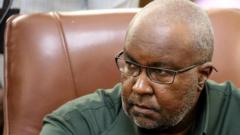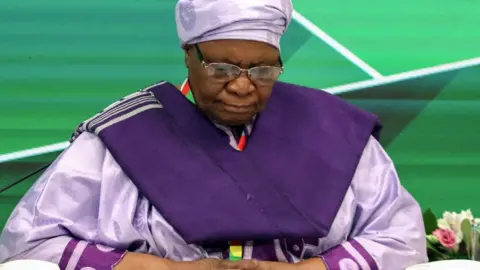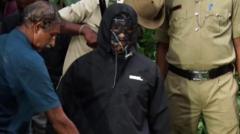Namibia’s agriculture minister, Mac-Albert Hengari, was dismissed from his post following allegations of raping a 16-year-old girl five years ago. The minister, now 59, was apprehended over the weekend for allegedly trying to bribe the victim, who is now 21, to retract her accusation, according to police reports. Hengari, who vehemently denies any wrongdoing, appeared in court on Monday where he was denied bail. This incident marks the first significant challenge faced by Namibia's newly elected female President, Netumbo Nandi-Ndaitwah, since her appointment last month.
While the official dismissal statement from the president's office did not mention specific reasons for his termination, it confirmed that Hengari was also removed from the National Assembly. His case is currently under investigation for multiple charges, including rape, kidnapping, and assault. During his appearance at a magistrates' court in Windhoek, he was charged with obstructing the course of justice. Authorities kept Hengari and his co-accused in custody until the next hearing scheduled for June 3, based on concerns they might evade justice or tamper with evidence.
Opposition party, the Independent Patriots for Change, condemned Hengari’s arrest as a stark reminder of government failures in addressing gender-based violence, which saw nearly 5,000 cases reported last year in a country with a population of just three million. The party has questioned the vetting process that led to Hengari's appointment, especially given allegations of a pending criminal investigation from November 2024.
Nandi-Ndaitwah, who leads a cabinet with a notable female representation—nine out of fourteen members—won her recent election with a significant majority, securing 58% of the votes. Her leadership has been positioned as a transformative step for women in Namibian politics since independence from apartheid in 1990.



















